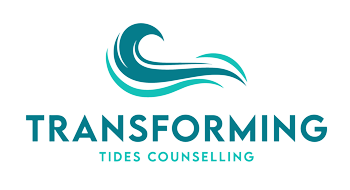Isn’t being positive the best way to be? There’s so much wrong in this world that “looking on the bright side” takes you away from all that, doesn’t it? After all, no one likes a downer, focusing on doom and gloom all the time. No one likes people who launch into all that’s negative and wrong with the world the moment you connect with them, right? Well, it may be true that no one likes a ‘Debbie Downer’, yet being positive all the time is actually not the best option for your mental wellbeing.
Let me say that again: “Being positive all the time is actually not the best option for your mental wellbeing.”
That statement may sound opposite to what you would expect someone in the mental health field to say. Yet it is true. Being positive has its place, and feeling joyful and happy is certainly fine. Yet, being positive all the time puts an expectation on you to not show other emotions that are also fine and a normal part of our human experience. Mental wellbeing is actually about being able to recognize and acknowledge the variety of emotions that come through your body each day, and know that each emotion fits for the circumstances you find yourself in.
Unreasonable Expectations
It’s healthy to feel a range of emotions, and to learn to manage all emotions, even the negative ones. Toxic positivity is when people expect you to feel only positive emotions, no matter the circumstances you are going through. It’s like when you scroll Instagram and see all the positive photos of people showing their best moments, and feel like your life should look the same. The bombardment of positive images in social media sets up unreasonable expectations that your life should look the same and defines success as being happy and on top of the world. Realistically, life is never all positive, life is filled with highs and lows and everything in between. Expecting to feel positive all the time is definitely unhealthy. Such an expectation minimizes feeling a normal and healthy range of emotions.
Creates Shame
When people influence you to be positive in the face of negative life events and stressful circumstances, you may end up feeling ashamed about not being positive. Feeling shame can happen when you think how you are being is the wrong way to be. It’s thinking that you’re not good enough because you’re not being positive in the face of negative or hard times. Feeling shame about yourself often leads to thinking poorly about who you are as a person, like you are not measuring up. Brene Brown talks about shame being directed at your character, as if you are thinking, “I’m a bad person” rather than thinking “I did a bad thing”. Shame is a difficult emotion to deal with and can certainly lead to suffering and being mentally unwell.
Increases Stress
Toxic Positivity creates stress in the body with its push to deny negative emotions. The body naturally creates hormones that cause you to feel anxiety, fear and stress when you are in difficult life situations. If you push these so-called negative emotions down and don’t acknowledge them, your body is actually under more stress. It creates stress in your system if you try to show up positively when deep down you are feeling the exact opposite.
How to Spot Toxic Positivity
You can spot a toxic positivity environment by listening to the phrases people are saying. Hearing positive quotes and words that tell you “Everything is fine”, “Look on the bright side”, “Just choose to be happy”, “Just blow it off”, “Everything happens for a reason”, “There’s always a silver lining”… are sure signs you are experiencing toxic positivity. People may mean to be helpful when they say such things, yet they can end up minimizing what you are really feeling and pushing you to feel a positivity you simply aren’t ready to feel.
The Alternative to Toxic Positivity
With the pressure of being positive all around you, allowing yourself to feel all your emotions can be difficult. The solution to toxic positivity is in expressing empathy for yourself and for others. When you show empathy, kindness and caring for yourself and others you accept the emotions that are present and support them. Empathy involves being open and aware of what others around you are feeling. It means you see and understand what others are going through, as well as yourself. Sharing empathy with another person creates a sense of community, togetherness and caring. Empathy accepts a range of emotions. When you treat others with empathy you are accepting them as they are, in the midst of their meltdowns and stress, and you give them kindness.
If you or someone you know is struggling with toxic positivity please reach out. The team at Transforming Tides Counselling offers a free 20 minute phone consultation to discuss your needs and answer your questions about counselling with us. It’s important to feel comfortable with your therapist. Let’s find out if we’re a good fit. Book your free phone consultation here.




